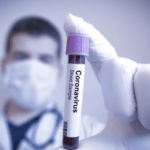How can scientists respond to infectious diseases that are transmitted from animals to humans? A European initiative has the answers.
Zoonoses – diseases that can spread between animals and humans, like avian influenza, rabies and severe acute respiratory syndrome – comprise a large percentage of all newly identified infectious diseases. As they represent a persistent global threat to public health, scientists are striving to develop strategies that effectively tackle widespread outbreaks, such as the novel coronavirus disease (COVID-19).
The EU-funded ZAPI project was at the forefront of this endeavour. Launched in March 2015, it has focused on establishing a swift response to major new infectious disease threats in Europe and across the world. It did so by designing new manufacturing processes for delivering effective and rapid control tools (vaccines, antibodies) against (re-)emerging zoonotic diseases with pandemic potential. Bringing together human and veterinary research institutions, NGOs, regulatory agencies, expert academic groups, and vaccine and biotech manufacturers, ZAPI used the ‘One Health’ approach.
According to the WHO, the One Health approach involves designing and implementing programmes, policies, legislation and research in which several sectors work together to achieve better public health outcomes. A WHO Q&A document states:
“Many of the same microbes infect animals and humans, as they share the eco-systems they live in. Efforts by just one sector cannot prevent or eliminate the problem. For instance, rabies in humans is effectively prevented only by targeting the animal source of the virus (for example, by vaccinating dogs).”
Using recent zoonotic models
ZAPI, which has worked on tackling outbreaks like those caused by coronavirus, used three different prototype models of diseases appearing in recent years that are zoonotic in nature. These are Middle East respiratory syndrome coronavirus (MERS-CoV), Schmallenberg virus (SBV) and Rift Valley fever virus (RVFV). It’s unlikely that SBV may pose a risk to humans, according to the European Centre for Disease Prevention and Control. MERS-CoV and SARS-CoV-2, the virus responsible for the COVID-19 pandemic, are genetically related, as noted in a news item.
Jean-Christophe Audonnet from project coordinator Merial Animal Health Ltd, says: “A platform is a generic methodology or technology that can be used for multiple targets; in the case of vaccines, the only thing that will change will be the immunogen. It’s an assembly of different components, so the way we manufacture the vaccine will always be the same.” He adds that although it’s unlikely to produce technology that can address every single new virus, “the ZAPI system design is flexible enough to address about 90% of all the targets that we can face.”
The outcomes of ZAPI (Zoonotic Anticipation and Preparedness Initiative) can be directly applied to SARS-CoV-2, according to Dr Audonnet. “It’s a real life experiment now for us. A factor that we need to explore better through dialogue is how we can reduce the timelines for the key decisions – political and regulatory ones,” he says.







Leave a Reply